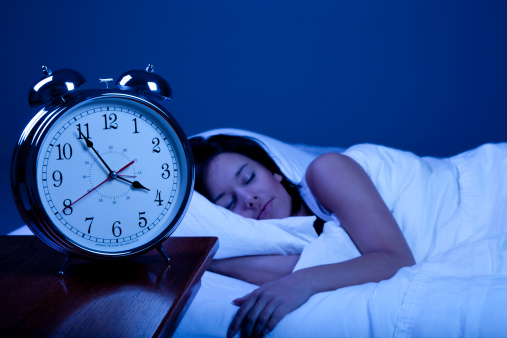Are the sheep you're counting every night
more exhausted than you are? Could your internal rooster snooze through a
five-alarm fire? Face it you need to check yourself into
Whether you admit you need help nodding off
or are still in denial about those suitcases under your eyes, chances are you
could use an intervention. One in 10 Australians have trouble getting enough
shut-eye and suffer from at least mild insomnia at any time, according to the
Sleep Health Foundation. Severe insomnia affects three percent of adults.
What's more, the foundation says sleeping disorders often go unrecognised and
untreated.

Professor Nick Glozier, a psychiatrist at
the University of Sydney, says if you sleep an average of fewer than 6.5 hours
a day your risk of dying early increases by 10 percent. 'Sleep disturbance and,
in particular, insomnia is a predictor of later development of depression and
possibly anxiety," Professor Glozier says. "But that's not to say
oversleeping helps. If you regularly oversleep (more than 9.5 hours a day) your
chances of dying increase much more than if you sleep too little." Between
seven and eight hours a night is optimum, he says.
The figures on sleep deprivation are pretty
harrowing, considering that sleep is absolutely essential for health and normal
functioning. So why are so many of us falling short?
"In our 24/7 culture, there are more
temptations than ever to entice us to stay up late," says Pete Bils, vice
chair of the Better Sleep Council. "Overexposure to light, noise and
caffeine - plus worries about the recession, wars and politics - all take a
toll."
Whatever your personal trigger, you can put
your snoozing back on track fast with our 12-step program. Read on to start
your recovery and reclaim your rest!
Unplug Cozying
up to your beloved laptop in bed or nodding off to the TV could disrupt your
zzzs. Not only is the content on the screen stimulating, but electronics emit a
blue hue that mimics daylight. This stops your body from producing the sleep
hormone called melatonin. So it's best to turn off all gadgets at least one
hour before bedtime.
Ease up on caffeine

Whether your drug of choice is diet cola,
dark chocolate or skim lattes, it's time to pull back. Caffeine lingers in your
system for up to 12 hours, so that 3pm coffee can still have a hold on you come
bedtime. When coffee cravings hit after noon, reach for a cup of decaf and. if
you're desperate for an energy boost, try going for a brisk walk around the
block instead of drinking that cup of coffee.
Do not over-hydrate
Sucking down too much liquid in the evening
is a sure-fire way to guarantee rest-wrecking midnight trips to the loo. Even
though your body helps by naturally reducing urine production during sleep,
it's a good idea to cut off liquids at least one hour prior to going to bed.
Build a great nest
Considering how many hours you spend in
your bed, it might be overdue for an upgrade. First, the mattress: the most
common bedding mistake people make is not replacing it often enough. Most
mattresses are at their best for five to 10 years. If yours is sagging, it's
probably already past its prime. When buying sheets make breathability the top
priority . Your body's temperature changes as you move through different sleep
stages so you neeed sheets that can handle the fluctuations. Go for natural
fibres such as cotton and silk.
Keep your cool

Physiotherapist Anna-Louise Bouvier, whose
health DVDs are sold through ABC shops, says it is also important not to
overheat during the night as this is a common reason for rousing. "Once
your body is awake your mind will be, too," Bouvier says.